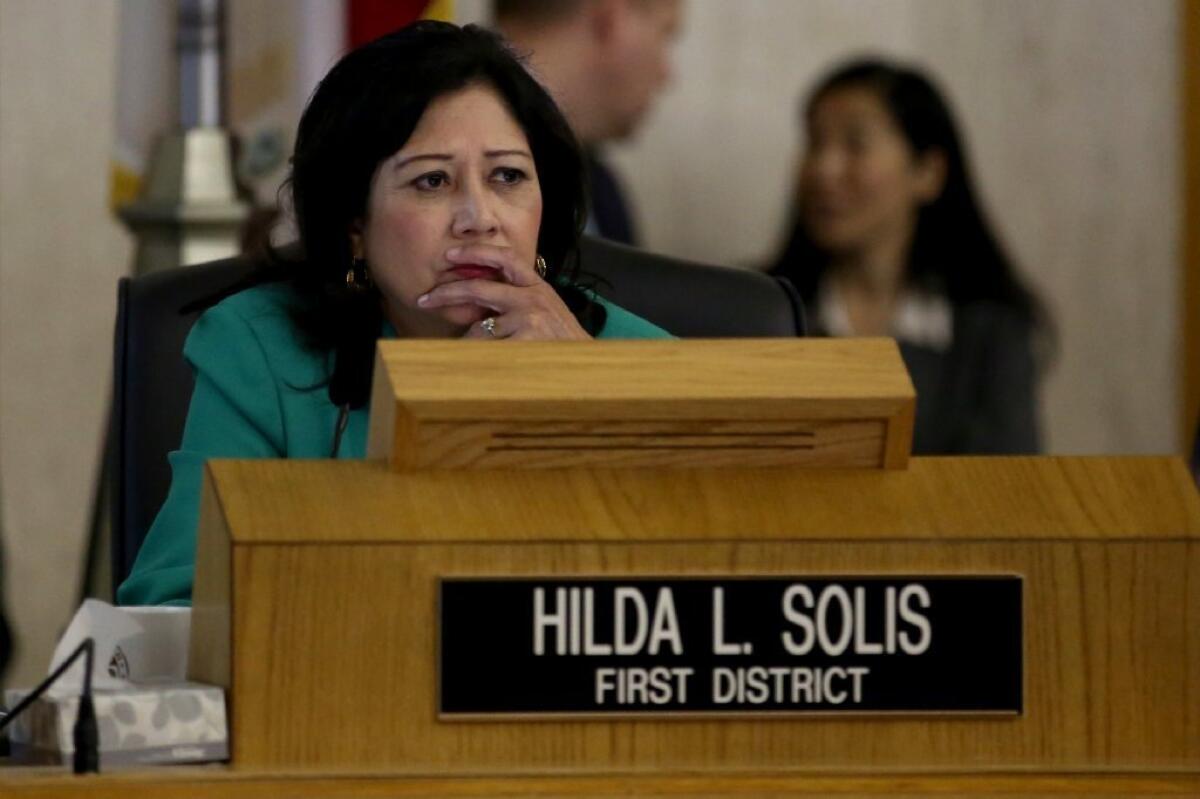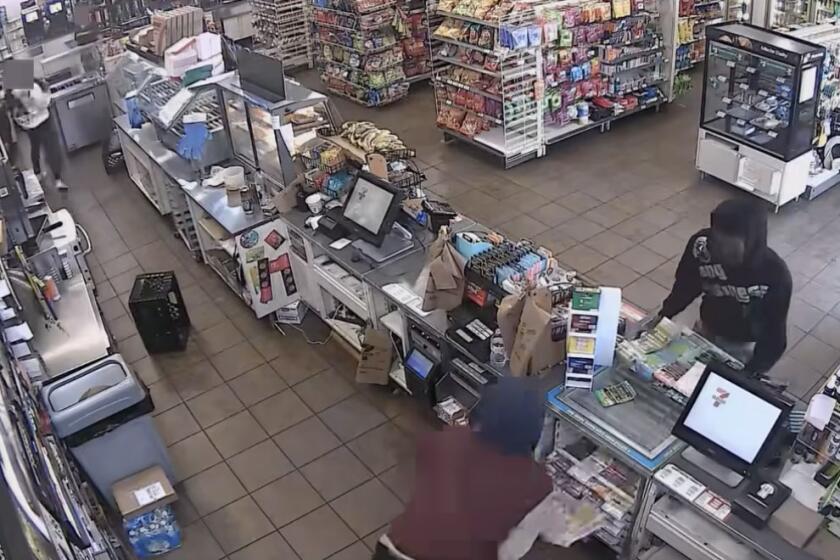L.A. County minimum wage hike poised to pass with Solis’ support

Los Angeles County Supervisor Hilda Solis listens during a Board of Supervisors meeting in July. In a vote last week, Solis temporarily blocked a proposal seeking state approval that would pave the way for a ballot initiative on funding to address homelessness.
A Los Angeles County supervisor who stalled a vote on raising the county minimum wage last month in the face of pushback from small businesses now says she is prepared to vote for a gradual increase to $15 an hour, giving the proposal the majority vote it needs to pass Tuesday.
Hilda Solis, historically a labor ally, surprised some observers when she appeared to balk at the proposed increase, which would extend the wage hike already approved by the city of Los Angeles to county unincorporated areas. But after commissioning a study of unincorporated area small businesses, Solis said that her concerns had been addressed. Supervisors Sheila Kuehl and Mark Ridley-Thomas had been prepared to vote for the boost last month.
“Yes, it’s going to happen,” Solis said. “I’ve been supportive since the beginning … but I wanted to make sure that county resources were focused in on how we move through the transition.”
Solis and Supervisor Don Knabe – a Republican who has expressed concerns about the increase – are proposing to create a group to help small businesses through the transition to the higher wage with measures that could include waiving permit fees, streamlining the licensing process and revising the bidding process for county contracts.
Along with the city’s pay increase, the vote to bump the minimum wage in county unincorporated areas will mean that half of the county workforce will be covered by the $15 hourly wage by 2021. The current statewide rate is $9 an hour.
Backers including Los Angeles Mayor Eric Garcetti are hoping that the supervisors’ move will encourage many of the other 87 other cities throughout the county to follow suit, creating a higher regional wage.
The supervisors commissioned a study by the Los Angeles Economic Development Corp. earlier this year to consider potential effects of the wage hike to $15 by 2020 for businesses with more than 25 employees and a year later for smaller businesses. The study included a survey of 1,000 businesses around the county and found that none expected to move or close down as a result of the higher wage. Most said they would pass on the higher costs to customers in increased prices and some said they might cut jobs.
Solis and Supervisor Michael D. Antonovich – who opposes the minimum wage increase – criticized the report for not including specific information on the effect in unincorporated areas like East Los Angeles, a densely populated area in Solis’ district with a high concentration of Latino-owned “mom-and-pop businesses.” Many of those business owners had complained vehemently about the proposed wage increase, saying it would not be possible to raise prices in the working-class neighborhood enough to offset the higher costs.
County staff canvassed small businesses in unincorporated areas and undertook in-person surveys as part of a follow-up study requested by Solis and Knabe, while a separate county-funded telephone survey was conducted by Employment Policies Institute, a conservative think-tank, at Antonovich’s behest.
Among the small businesses surveyed by county staff, about two-thirds said they would not cut jobs or hours as a result of the wage increase, while the rest said they would or were undecided. Businesses in the wealthier districts on the Westside were more likely than those in the lower-income areas to say that they would cut jobs. The survey also asked business owners what measures the county could take to offset the increased wage costs. The most popular option was cutting permit and license fees, which 69% of business owners said would help. The business owners also asked for relief on fee costs and for tax credits.
The Employment Policies Institute survey came up with starkly different results, finding that 63% of businesses said they were likely to cut hours and 54% likely to reduce staffing levels. One-third said they might consider relocating to an area with a lower minimum wage.
The supervisors are set to vote on the minimum wage Tuesday, along with separate proposals that would increase base pay for county contractors and look at ways to enforce wage rules countywide.
abby.sewell@latimes.com
More to Read
Start your day right
Sign up for Essential California for news, features and recommendations from the L.A. Times and beyond in your inbox six days a week.
You may occasionally receive promotional content from the Los Angeles Times.







